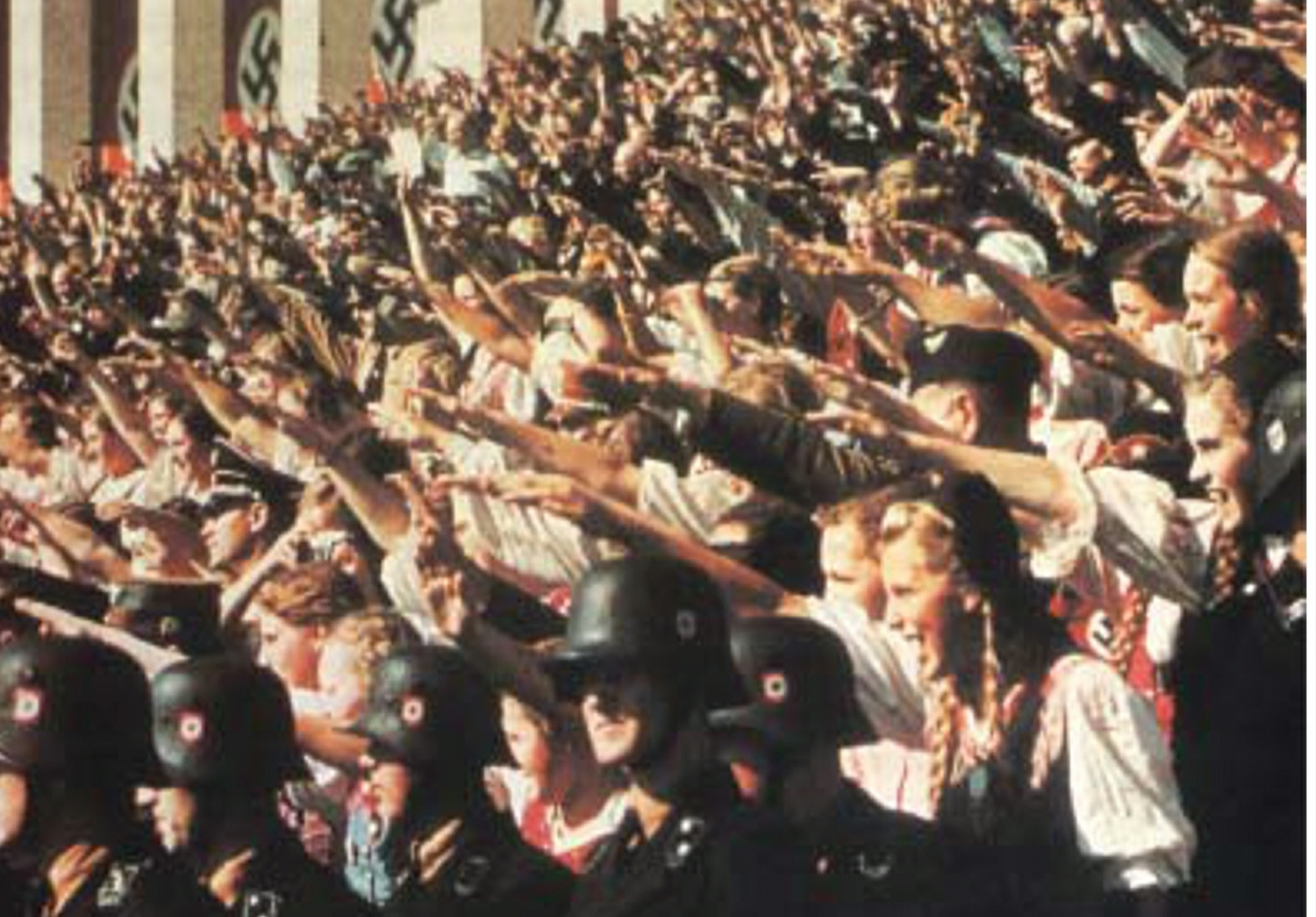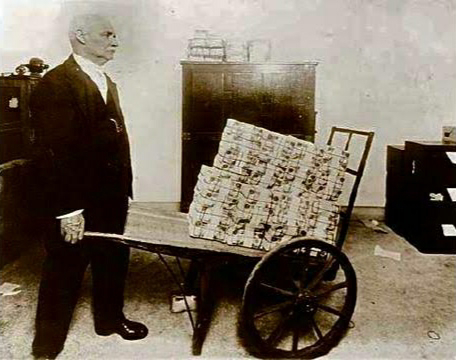Causes of Hitler's Rise to Power in Germany
The Main reasons why Hitler rose to power in Germany are:
1. Due to the effects of first world war.
3. Failure of Weimar Republic government to tackle the problems faced by the nation.
6. Years of depression after 1929.
This crisis in the economy, polity and society formed the background to Hitlers rise to power. Born in 1889 in Austria, Hitler spent his youth in poverty. When the First World War broke out, he enrolled for the army, acted as a messenger in the front, became a corporal, and earned medals for bravery. The German defeat horrified him and the Versailles Treaty made him furious. In 1919, he joined a small group called the German Workers Party. He subsequently took over the organisation and renamed it the National Socialist German Workers Party. This party came to be known as the Nazi Party.
In 1923, Hitler planned to seize control of Bavaria, march to Berlin and capture power. He failed, was arrested, tried for treason, and later released. The Nazis could not effectively mobilise popular support till the early 1930s. It was during the Great Depression that Nazism became a mass movement. As we have seen, after 1929, banks collapsed and businesses shut down, workers lost their jobs and the middle classes were threatened with destitution. In such a situation Nazi propaganda stirred hopes of a better future. In 1928, the Nazi Party got no more than 2. 6 per cent votes in the Reichstag the German parliament. By 1932, it had become the largest party with 37 per cent votes.
Hitler was a powerful speaker. His passion and his words moved people. He promised to build a strong nation, undo the injustice of the Versailles Treaty and restore the dignity of the German people. He promised employment for those looking for work, and a secure future for the youth. He promised to weed out all foreign influences and resist all foreign conspiracies against Germany.
Nuremberg Rally, 1936. Rallies like this were held every year. An important aspect of these was the demonstration of Nazi power as various organisations paraded past Hitler, swore loyalty and listened to his speeches.
Hitler devised a new style of politics. He understood the significance of rituals and spectacle in mass mobilisation. Nazis held massive rallies and public meetings to demonstrate the support for Hitler and instil a sense of unity among the people. The Red banners with the Swastika, the Nazi salute, and the ritualised rounds of applause after the speeches were all part of this spectacle of power.
Hitler addressing SA and SS columns. Notice the sweeping and straight columns of people. Such photographs were intended to show the grandeur and power of the Nazi movement
Nazi propaganda skilfully projected Hitler as a messiah, a saviour, as someone who had arrived to deliver people from their distress. It is an image that captured the imagination of a people whose sense of dignity and pride had been shattered, and who were living in a time of acute economic and political crises.






Comments
Post a Comment